I am honored to have been selected to present two sessions at the PASS Summit 2019 in Seattle, WA. This year, I have a half-day session and a regular, general session.
My half-day session is Dr. DMV’s Troubleshooting Toolkit, and here is the abstract:
Dr. DMV’s Troubleshooting Toolkit
Dynamic Management views and functions allow you to easily see exactly what is happening inside your SQL Server instances and databases with a high level of detail. You can discover your top wait types, most CPU intensive stored procedures, find missing indexes, and identify unused indexes, to name just a few examples. This session presents, demonstrates, and explains a complete set of diagnostic DMV queries that you can easily use to detect and diagnose configuration and performance issues in your SQL Server instances and databases. This session goes into exhaustive detail on how to interpret the results of each of the diagnostic queries, including relevant background information on how to properly configure your hardware, storage subsystem, operating system, SQL Server instance, and databases in order to avoid performance and scalability issues.
This is a topic that I have presented and taught multiple times, and it is something I am quite passionate about. I use my Diagnostic Information Queries on a daily basis in my consulting work, and they are extremely useful. Having 2.5 hours to go through them gives me plenty of time to cover them in detail without having to rush through them.
My general session is Hardware 301: Choosing Database Hardware for SQL Server 2019, and here is the abstract:
Hardware 301: Choosing Database Hardware for SQL Server 2019
Microsoft made some sweeping changes to their software licensing model for SQL Server 2012; moving from socket-based licensing to core-based licensing. This new licensing model alters much of the conventional criteria for hardware selection for database servers that will be running SQL Server 2012 and newer. This change still causes a significant amount of angst, with fears of huge increases in SQL Server licensing costs compared to older versions of the product. This session will cut through the uncertainty and hype to show you how to properly evaluate and choose your database hardware for usage with SQL Server 2016 and newer. You will learn how to choose hardware for different types of workloads and how to get the best performance and scalability for the lowest licensing cost, whether you are running in a physical or virtualized environment.
I will be talking about the latest developments with AMD and Intel server processors, and how they affect you as a data professional. With the upcoming release of the AMD EPYC “Rome” server processors (which I am 100% sure will be released by early November) the landscape of the server market has drastically changed. The old guidance about always buying an Intel-based server is not going to be a slam dunk any longer. This session is relevant for all versions of SQL Server, whether you are running virtualized or not.
Hopefully I will see you at both of my sessions and at PASS in general!
